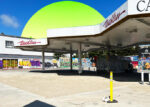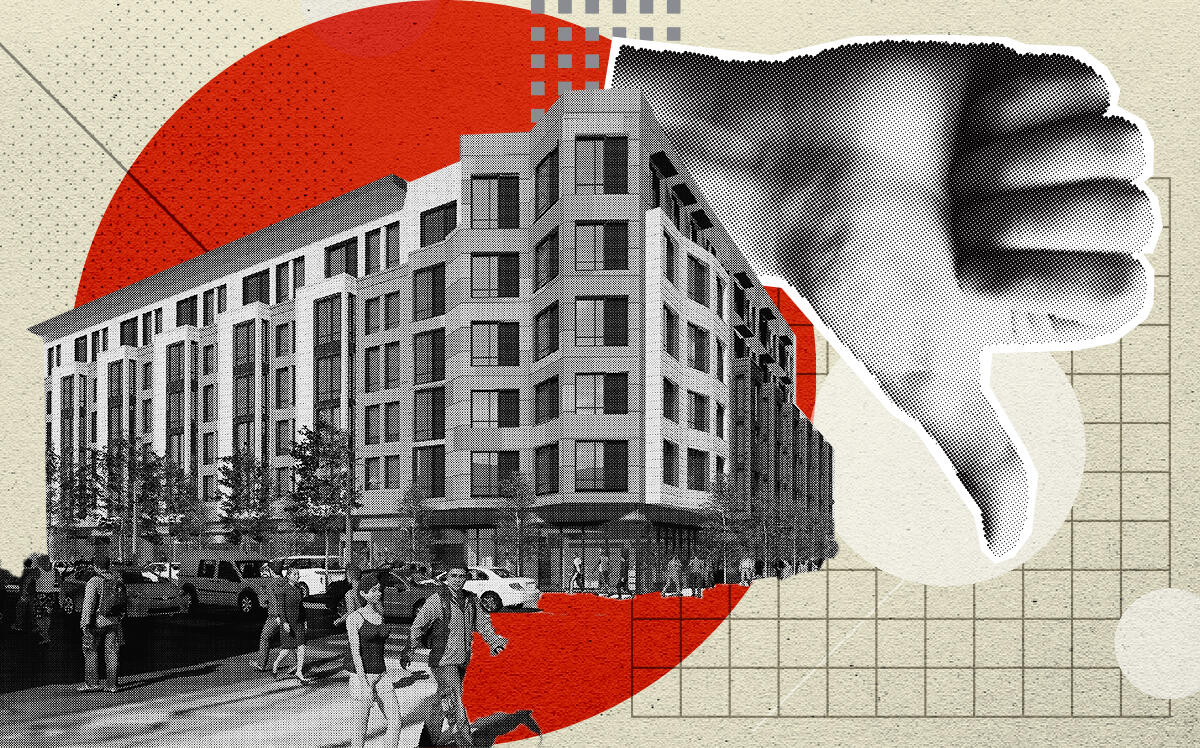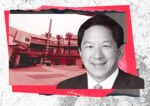 Touchless Car Wash owners clean up on Stinson Beach
Touchless Car Wash owners clean up on Stinson Beach
Trending
Touchless Car Wash redevelopment “abandoned” by developer
SF Supervisor Dean Preston confirms 186-unit apartment project is dead, sets his sights on affordable housing

After seven years of negotiating, designing, planning and permitting, the developers of the shuttered Touchless Car Wash site have “abandoned” their entitled plans to build an apartment complex, confirmed San Francisco Supervisor Dean Preston, who represents the Lower Haight neighborhood.
“Since the original developer abandoned plans after securing all necessary city approvals, we have been actively engaged to do everything possible to secure this site for 100 percent affordable housing,” Preston said via an emailed statement.
For years, Texas-based developer Genesis Living worked to turn the 1-acre site at the corner of two major San Francisco thoroughfares into a 186-unit apartment complex with ground-floor retail.
Preston’s said he became aware in February that the long-awaited apartment and retail complex, which had been entitled with 20 percent of the onsite units set at below-market rates, was “being marketed” and “immediately engaged with nonprofit developers, the property owner and the mayor’s office about the potential to acquire this site for 100 percent affordable housing.”
He did not say which affordable housing developer might take on the project at the corner of Divisadero and Oak streets, estimated to cost an estimated $50 million to build back when plans were first filed in 2015. But Preston said “there is consensus that affordable housing here is viable.”
The six-story redevelopment moved slowly through the entitlement process for years, backing off of density bonuses in the face of neighborhood disapproval, before finally receiving the Planning Commission’s go-ahead in 2019. At the time, only 12 percent affordable housing was required, but Genesis Living agreed to 20 percent to move the project forward.
Building permits were filed shortly after the approval, but on May 4, demolition permits filed by Genesis in January were put on hold “pending completion of site permit review,” according to DBI records. A note from May 17 said that construction plans were slated to be approved after a few minor changes regarding sidewalk encroachment and street trees. In July, the department had not yet received the information and design plans it requested to allow the construction to move forward.
Genesis leadership in Richardson, Texas did not immediately respond to an emailed request for comment and the phone number for the development company, which still lists the 400 Divisadero project on its website, did not appear to be working.
David Kriozere, who was the local point person for Genesis as vice president for development since July 2013, left to start his own company in June of last year. Kriozere, who was also part of the development team for One Rincon Hill, did not reply to requests for comment. The website for his company, ADK Land Ventures, still has 400 Divisadero on its website.
In May, Genesis also filed a quit claim deed on the property and relinquished all rights back to the long-time owners, Roy and Patricia Shimek. Roy Shimek began working at the car wash in 1960 as a student and purchased it from its first owner. The couple told Hoodline in a 2015 interview. It was the city’s first automated car wash when it first opened in 1958, they said, and then became the first in the country to do away with mechanical scrubbing when it reopened as Touchless Car Wash in 1987. The couple said at the time that they were ready to retire and the only offers on the property were to develop it, not keep it as a car wash or gas station.
Preston said he did not know why the developer had walked away from the project but last November, Kriozere told the Alamo Square Neighborhood Association that construction was delayed due to “a two-fold challenge”: construction cost increases and the rental market decline brought on by the pandemic. He said the “gap” between when the car wash closed after the Shimeks retired and the start of construction could be ameliorated by filling the space with “public art if needed.” Public art of a sort has proliferated at the fenced-off site, with graffiti covering much of the car wash, gas station pumps and one wall of 1060-1062 Oak Street. The Victorian two-unit building was due to be moved about 50 feet east during the construction, replacing two other low-rise buildings on Oak that were set to be demolished.
The abandoned development plans come as building applications have plummeted to a six-year low in San Francisco and developers have been telling the city that it must address its fee structure and affordable housing requirements in order for housing projects to pencil. The city is under investigation by the state’s Department of Housing and Community Development on its housing approval process, which is the slowest in the state, and is currently working on plans to satisfy the state’s requirements for 82,000 new housing units by 2031.
Read more
 Touchless Car Wash owners clean up on Stinson Beach
Touchless Car Wash owners clean up on Stinson Beach
 Fees must shrink if SF wants new housing, developers say
Fees must shrink if SF wants new housing, developers say
 SF housing bottleneck: resi entitlements, permits take longest in state
SF housing bottleneck: resi entitlements, permits take longest in state




